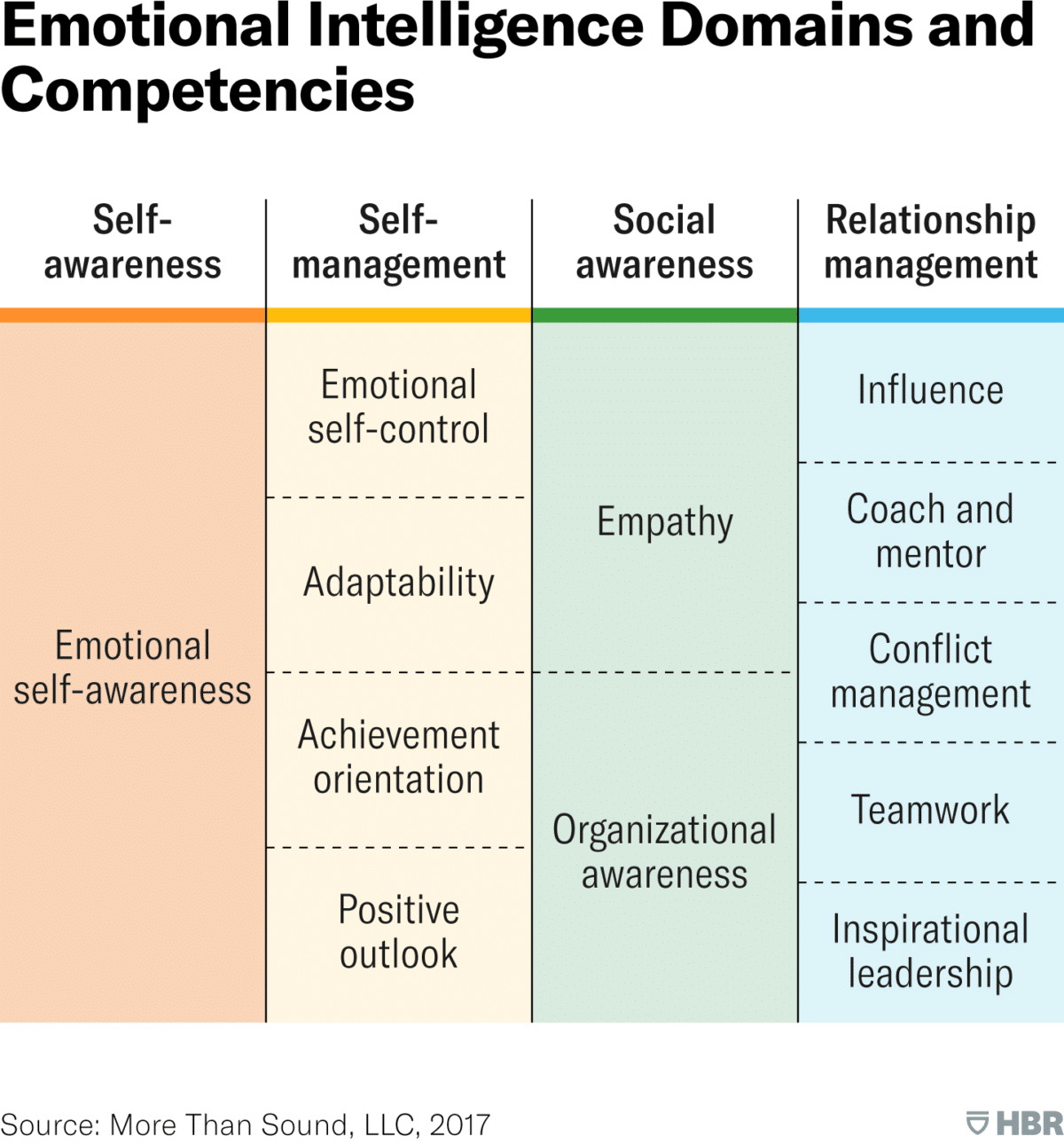Do you have this one skill that’s guaranteed to make you more successful, more productive, earn a higher salary and even make you a better leader?
Many of us, struggle in our lives despite working hard and having all the necessary career skills, IQ. Did you ever think, why people with lower academic grades are so successful in professional lives ?
Emotional Intelligence is widely recognized as the most important indicator of performance and 90% of top performers score high in emotional intelligence (according to research from Talent Smart).
Here, I share 3 strategies to develop your emotional intelligence skills to be able to position yourself for career advancement and leadership opportunities.
- Become better at identifying your own emotional states.
- Seek to Understand.
- Focus on relationships.
Emotional intelligence (EI) is the ability to understand, use, and manage your own emotions in positive ways to communicate effectively, empathize with others, overcome challenges, and resolve conflicts.
EI is composed of four main skills: self-awareness, self-management, social awareness, and relationship management.
Improving Emotional Intelligence
Luckily, emotional intelligence can be improved once we realize its importance, understand it better, and start putting effort to improve it. To improve your emotional intelligence, you can try the following steps:
- Recognize and name your emotions: The first step to improving EI is to become more aware of your own feelings and how they affect your thoughts and actions. You can use a journal, a mood tracker app, or simply pause and reflect on how you are feeling throughout the day.
- Manage your emotions: Once you are aware of your emotions, you can learn to regulate them and express them in healthy ways. You can use techniques such as breathing exercises, meditation, positive affirmations, or distraction to calm yourself down when you are feeling stressed, angry, or anxious.
- Understand the emotions of others: EI also involves being able to empathize with other people and see things from their perspective. You can improve this skill by paying attention to the verbal and nonverbal cues of others, such as their tone of voice, facial expressions, body language, and gestures. You can also ask open-ended questions and listen actively to what they are saying and feeling.
- Build positive relationships: EI helps you to communicate clearly, collaborate effectively, and influence others positively. You can enhance this skill by giving and receiving feedback, expressing appreciation, resolving conflicts constructively, and supporting others in their goals.
- By following these steps, you can improve your emotional intelligence and enjoy the benefits of better personal and professional relationships.
Emotional intelligence is the ability to understand, use, and manage your own emotions in positive ways to communicate effectively, empathize with others, overcome challenges, and resolve conflicts. People who have high emotional intelligence tend to avoid certain behaviors that can harm their relationships, well-being, and success.
Emotional Intelligence Don’t Do List
Here are some of the things that emotional intelligence don’t do, based on the web search results I found for you:
- Never habitually criticize others : EI people don’t habitually criticize others, when they criticize they do it in a constructive way and often try to help others in the best possible ways.
“Criticism of others is a form of self-commendation. We think we make the picture hang straight on our wall by telling our neighbors that all his pictures are crooked.”
― Fulton J. Sheen
- They don’t have temper tantrums: They know how to control their emotions and express them in healthy ways. They don’t let their anger or frustration get the best of them and affect their interactions with others.
- They don’t blame others for their problems: They take responsibility for their own actions and choices. They don’t make excuses or point fingers at other people. They own up to their mistakes and learn from them.
- They don’t worry about the future or ruminate on the past: They live in the present and focus on what they can control. They don’t let anxiety or regret paralyze them or prevent them from taking action. They accept uncertainty and change as part of life.
- Worrying About the Future
“Worry does not empty tomorrow of its sorrow, it empties today of its strength.”
― Corrie Ten Boom - Ruminating on the Past
“To think too much is a disease.”
― Fyodor Dostoyevsky
- Worrying About the Future
- They don’t behave insensitively: They are aware of other people’s emotions and feelings. They show empathy and compassion to others. They don’t ignore, dismiss, or criticize other people’s perspectives or experiences.
- They don’t maintain unrealistic expectations: They are realistic and flexible in their goals and plans. They don’t set themselves up for disappointment or failure by demanding perfection from themselves or others. They adapt to changing circumstances and cope with challenges.
Maintaining Unrealistic Expectations
“He was swimming in a sea of other people’s expectations. Men had drowned in seas like that.”
― Robert Jordan - They don’t say “I can’t help it – I’m just wired that way.”: They acknowledge that they have the power to change their behavior and improve their emotional intelligence. They don’t use their personality or temperament as an excuse for being emotionally immature or irresponsible. They seek feedback and guidance from others and work on developing their emotional skills.
These are some of the things that emotional intelligence don’t do, according to the sources I found. If you want to learn more about emotional intelligence, you can check out some of the links I provided
